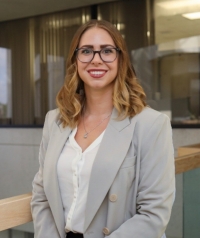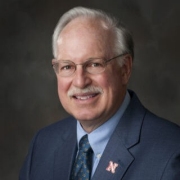WEBINAR SERIES
MCNER 2025 - 2026 Webinar Series for
Health Professionals
The menopause transition is characterized by complex hormonal, cardiovascular, and metabolic changes that significantly influence women's long-term health risks. Despite the availability of general dietary guidelines for cardiovascular disease prevention, there remain gaps in the research specifically addressing the nutritional needs of perimenopausal and postmenopausal women. This webinar will critically examine the role of nutrition in reducing health risks associated with the menopause transition. We will review current dietary guidelines in the context of menopausal physiology, explore behavioral and metabolic adaptations during this life stage, and evaluate the evidence supporting dietary patterns such as Mediterranean, DASH and low-carbohydrate diets. Special attention will be given to the emerging field of precision nutrition, with a focus on how personalized dietary strategies can optimize cardiovascular and metabolic outcomes in midlife women.
Earn 1 free CPEU (RD/RDN/DTR)
Upon completing this activity, the learner will be able to:
- Understand the physiological and behavioral changes surrounding the transition from normal menstrual cycle and function to menopause, including the impact of estrogen loss on female metabolism and weight gain.
- Summarize the specific nutritional and health needs to optimize post-menopausal health, highlighting interventions with established efficacy.
- Introduce precision nutrition approaches tailored to women in midlife.
Presenter

Hannah Cabré, PhD, RDN
Hannah Cabré, PhD, RDN, is a Postdoctoral Fellow in the Reproductive Endocrinology & Women’s Health Lab at Pennington Biomedical Research Center, where she is Principal Investigator on a clinical trial in perimenopausal women, examining how diet can affect cardiovascular disease and vasomotor symptoms. As a registered dietitian and exercise physiologist, her research focuses on how hormonal regulation influences metabolism, body composition and physical function especially during perimenopause and menopause. Dr. Cabré is an author on numerous peer reviewed publications on these topics. She earned her M.S. in Exercise Physiology from Florida State University and her Ph.D. in Human Movement Sciences from The University of North Carolina, Chapel Hill. In addition to her research, Dr. Cabré is a frequent speaker on women’s health issues, including weight management, menopause and nutrition, and other endocrine-related concerns.
Details on CE Credits
Dr. Cabré has received research funding from the National Pork Board. The relevant financial relationships listed for this individual have been mitigated. The Nurse Planner will monitor the program for any evidence of commercial bias.
To receive a CE certificate, you must individually register online for the webinar and attend the full program. In addition, all nurses must complete an online evaluation. Villanova University M. Louise Fitzpatrick College of Nursing is accredited as a provider of nursing continuing professional development by the American Nurses Credentialing Center’s Commission on Accreditation.
This activity awards 1.0 CPEU in accordance with the Commission on Dietetic Registration’s CPEU Prior Approval Program
Visit villanova.edu/mcner or email mcner@villanova.edu to join our Contact list or for more information on how to become a Webinar Sponsor. A non-profit center, MCNER is based in the Fitzpatrick College of Nursing at Villanova University. MCNER supports and develops educational programs for health professionals, educators, work sites and the public.
Food insecurity in Pennsylvania has increased by over 40% in the last two years, with one in eight Pennsylvanians facing hunger. The link between food insecurity, nutrition education and resources, and health outcomes is undeniable. Feeding Pennsylvania is a statewide nonprofit organization committed to reducing hunger and food insecurity by supporting its network of member food banks. Through impactful initiatives such as Farmers Feeding Neighbors, Fill a Glass with Hope, and the Healthy Pantry Initiative, Feeding Pennsylvania ensures access to fresh, nutritious food for families across the Commonwealth. Join us to learn how nutrition education can play a critical role in the charitable food system, providing neighbors with dignity, and empowering them to make healthy choices.
Earn 1 free CPEU (RD/RDN/DTR)
Upon completing this activity, the learner will be able to:
- Understand the extent of food insecurity in Pennsylvania.
- Explore the link between food insecurity and health and the innovative ways nutrition education can make a difference.
- Learn ways health professionals can get involved in the movement to end hunger through advocacy, resource sharing, and hands-on strategies.
Presenters

Lauren Duff serves as the Chief Public Affairs Officer at Feeding Pennsylvania, where she leads strategic communications and advocacy efforts to elevate the organization's mission and impact. With a background in public policy and community engagement, Lauren plays a key role in shaping initiatives that address food insecurity and promote equitable access to nutrition across the state.

Megan Greevy, MS, RD, LDN, is the Director of Nutrition Education at Feeding Pennsylvania. A registered dietitian with extensive experience in public health nutrition, Megan oversees educational programming that empowers individuals and families to make informed, healthy food choices. Her work bridges the gap between food access and nutrition literacy, ensuring that charitable food systems also support long-term health outcomes.
Details on CE Credits
There are no relevant financial relationships with ineligible companies for those involved with the ability to control the content of this activity. To receive a CE certificate, you must individually register online for the webinar and attend the full program. In addition, all nurses must complete an online evaluation.
This activity awards 1.0 CPEU in accordance with the Commission on Dietetic Registration’s CPEU Prior Approval Program.
Visit villanova.edu/mcner or email mcner@villanova.edu to join our Contact list or for more information on how to become a Webinar Sponsor. A non-profit center, MCNER is based in the Fitzpatrick College of Nursing at Villanova University. MCNER supports and develops educational programs for health professionals, educators, work sites and the public.
Despite growing recognition of dietary fiber’s critical role in gut health and overall wellness, intake levels across all age groups consistently fall short of recommendations, highlighting the need for innovative strategies to meet needs. This program provides health professionals with a deeper understanding of the emerging role of fiber in overall health, including its impact on the gut microbiota, as well as an exploration of dietary fiber types, and physiological benefits by fiber subtype. Current fiber recommendations across various age groups will be addressed, along with population intake estimates and shortfalls. Following the presentation, a panel discussion and Q&A will explore additional novel strategies for increasing fiber intake, offering actionable insights to bridge the gap between dietary guidelines and real-world consumption and encouraging ongoing conversation.
Earn 1 free CPEU (RD/RDN/DTR)
Upon completing this activity, the learner will be able to:
- Review differences in fiber type and physiological health benefits.
- Provide an overview of the emerging role of fiber in promoting gut health.
- Identify current dietary fiber recommendations for health vs. average U.S. adult intake.
- Discuss practical and novel strategies for increasing dietary fiber intake to meet goals.
Presenter

Nicola McKeown, PhD
Nicola McKeown, PhD, is a research professor in Nutrition Epidemiology at the Sargent College of Health and Rehabilitation Sciences at Boston University. Dr. McKeown received a B.S. in Human Nutrition from the University of Ulster in Northern Ireland and a Ph.D. in Nutritional Epidemiology from the University of Cambridge in England. Her research focuses on the impact of diet quality on disease risk and healthy aging. She has made significant contributions to understanding the impact of different carbohydrate sources, including whole-grains and sugar-sweetened beverages, on abdominal adiposity, metabolic syndrome, and diabetes risk. Dr. McKeown is PI on an innovative project creating a publicly available dietary fiber database capturing current research linking dietary fibers to human health outcomes and is collaborating on projects to understand the intersection between improving health and sustainable diets.
Q & A Discussion Panel Participants

Rod Wallace, Ph.D. is a business strategist and economist. A Fulbright fellow, Wallace earned his PhD in Economics from the University of Michigan. As the President of the Foundation for Innovation in Healthy Food, Rod leads a coalition of scientists, business professionals, and other stakeholders dedicated to transforming the food industry by prioritizing the role of nutrition in health.

Stephen Baenziger, PhD, is a plant breeder and nonprofit thought leader. The Emeritus Wheat Growers’ President’s Chair at the University of Nebraska, Lincoln, Baenziger earned his PhD in plant breeding and genetics at Purdue University. As the Chair of the Board for the Foundation for Innovation in Healthy Food, Stephen provides strategic direction for the effort to enhance nutrition in everyday foods, while preserving the joy of eating.
Details on CE Credits
Dr. McKeown is a scientific advisor and/or consultant with Whole Grains Council, Institute for the Advancement of Food and Nutrition Sciences, Grains for Health Foundation, American College of Lifestyle Medicine, the Soy Nutrition Institute Global and was a sponsored speaker by PepsiCo. The program planners will monitor the program for any evidence of commercial bias. Rod Wallace, PhD and P.Stephen Baenziger, PhD have no disclosures to report.
To receive a CE certificate, you must individually register online for the webinar and attend the full program.
This activity awards 1.0 CPEU in accordance with the Commission on Dietetic Registration’s CPEU Prior Approval Program.
Visit villanova.edu/mcner or email mcner@villanova.edu to join our Contact list or for more information on how to become a Webinar Sponsor. A non-profit center, MCNER is based in the Fitzpatrick College of Nursing at Villanova University. MCNER supports and develops educational programs for health professionals, educators, work sites and the public.
Save the Date!
Speaker: Carl (Chip) Lavie, Jr., MD, FACC, FACP, FCCP
Professor of Medicine and Medical Director of Cardiac Rehabilitation and Prevention; Director, Exercise Laboratories; Department of Cardiovascular Diseases, John Ochsner Heart and Vascular Institute, Ochsner Clinical School-the University of Queensland School of Medicine, New Orleans, LA
To view past webinar and program recordings, check out our Material Archives page.

